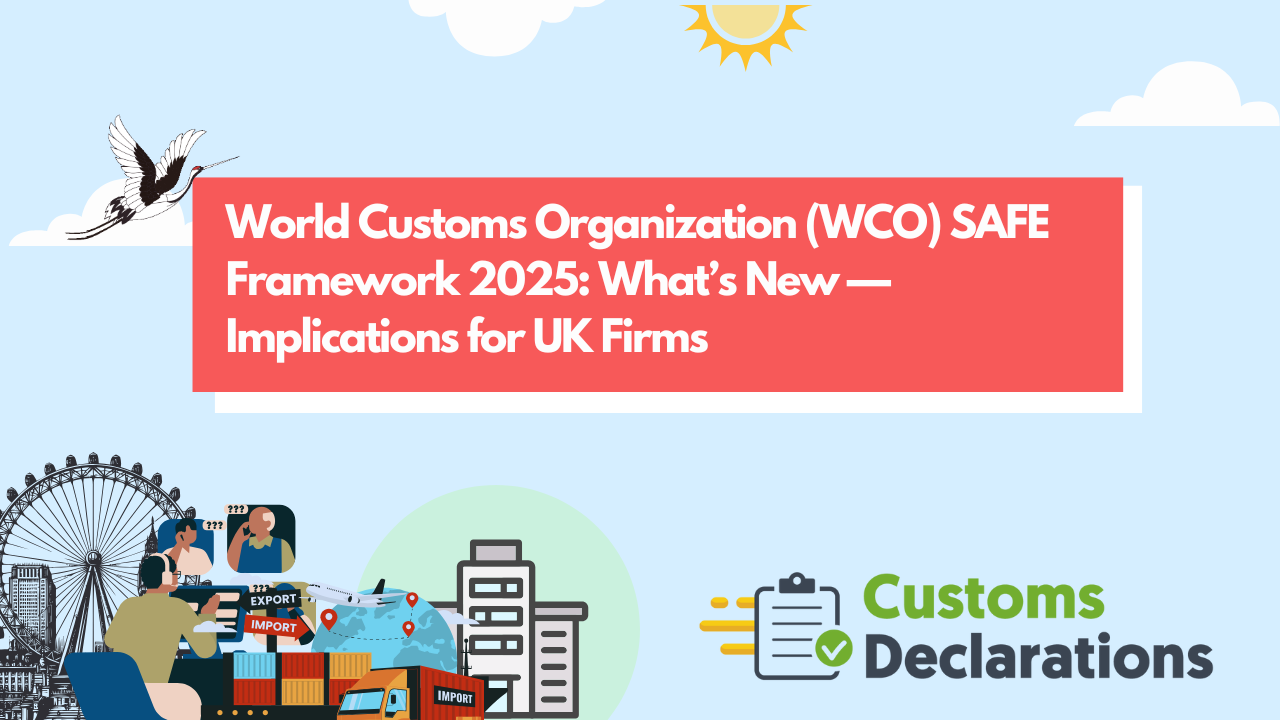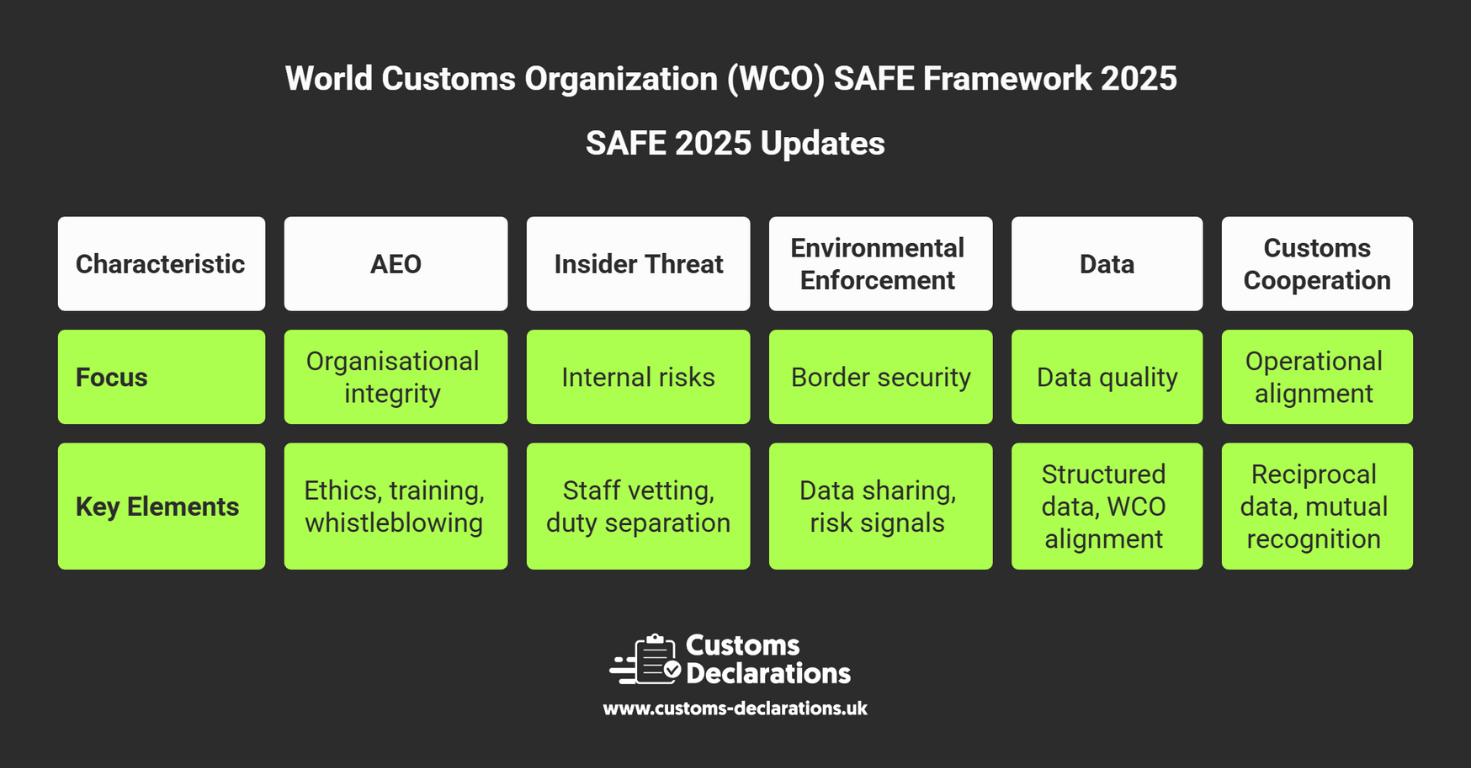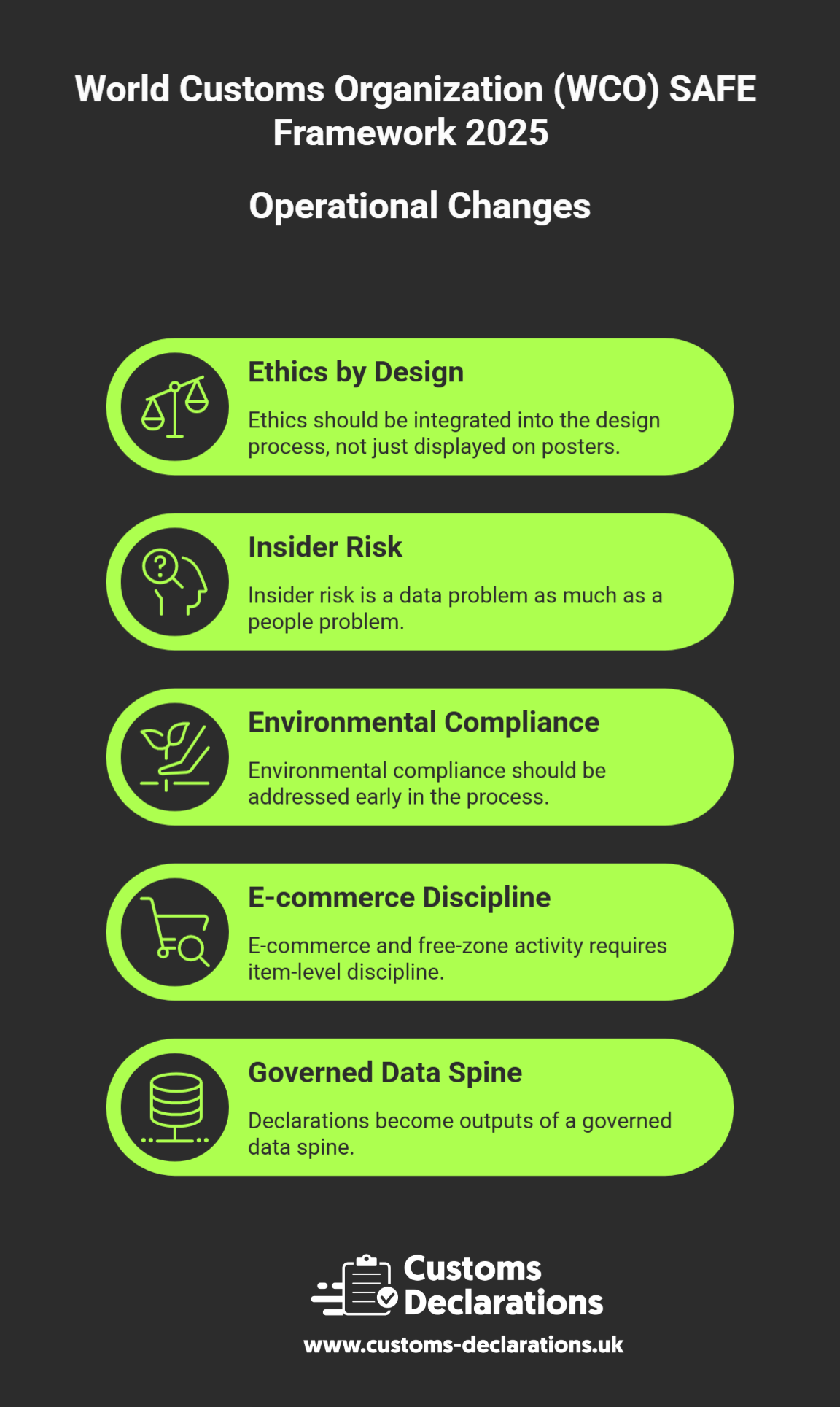Introduction: A bigger, broader definition of “secure and facilitated trade”
The World Customs Organization’s SAFE Framework has underpinned border modernisation since 2005, guiding how customs authorities cooperate with each other and with business. The 2025 update is the most consequential refresh in years. It keeps the familiar pillars—Customs-to-Customs cooperation, Customs-to-Business partnerships, and Customs-to-Other Government Agencies coordination—but expands their scope to reflect a changed world: e-commerce dominance, free-zone growth, climate and biodiversity enforcement, cyber and insider threats, and the need to bring micro and small firms into trusted trade.
For UK companies—especially AEOs (Authorized Economic Operators) and those aspiring to trusted status—the message is clear. Security no longer means only seals on containers or X-rays at the quay. It now means integrity in people and processes, verified sustainability obligations, early and accurate data sharing, and continuous transparency across your supply chain. This article explains what is new in the WCO SAFE 2025 edition, why it matters for UK operators, and what concrete steps you can take to align your customs declaration routines, origin proofs, and data governance so you gain facilitation benefits rather than accumulating delays and rework.



